South Koreans Expand Air Defense Zone In Challenge To China
The ongoing client in the seas and skies in the Western Pacific took a new turn when South Korea announced an expansion of its own air defense zone:
SEOUL, South Korea — Defying both China and Japan, South Korea announced on Sunday that it was expanding its air patrol zone for the first time in 62 years to include airspace over the East China Sea that is also claimed by Beijing and Tokyo.
South Korea’s expanded “air defense identification zone” was the latest sign of a broadening discord among the Northeast Asian neighbors, who are already locked in territorial and historical disputes.
With South Korea’s newly expanded zone, the air defense zones of all three countries now overlap over a submerged reef called Ieodo in South Korea and Suyan Rock in China. The reef is controlled by South Korea, which maintains a maritime research station there, but China also claims it. The seabed around the reef is believed to be rich in natural gas and minerals deposits.
The South Korean move came two weeks after China stoked regional tensions by unilaterally expanding its own air patrol zone to partly overlap with South Korea’s and include airspace over the reef. The expanded Chinese air control zone also covers a set of East China Sea islands, called Diaoyu in Chinese and Senkaku in Japanese, which are at the heart of a territorial feud between Japan and China.
The airspace disputes were a major topic when Vice President Joseph R. Biden Jr. visited Japan, China and South Korea last week.
With its announcement on Sunday, South Korea expanded its air defense zone more than 300 kilometers, or 186 miles, to the south. It said its new zone would take effect in a week. There was no immediate response from Beijing or Tokyo.
The expanded air defense zone follows the boundaries of South Korea’s existing “flight information region,” an area assigned to South Korea for civilian air traffic control under an agreement with the International Civil Aviation Organization. It will have no impact on civilian flights, said Kim Min-seok, a spokesman for the South Korean Defense Ministry.
But the announcement of the expanded zone raises the risk of an accidental military clash in the region. A military plane entering another country’s air defense identification zone must notify that country in advance. If it fails to do so, the country operating the zone may order it to leave, or dispatch military jets to confront the intruding aircraft.
Maj. Gen. Chang Hyok, a senior policy coordinator at the South Korean Defense Ministry, said Sunday that his government had explained its new air patrol zone to China and Japan. President Park Geun-hye also discussed it with Mr. Biden on Friday.
“Our top priority is to prevent accidental military clashes in the area,” General Chang said at a news briefing.
In the end, I’d suggest that the highlighted text above may be the key to what this is really all about. None of these three nations — China, Japan, or South Korea — really cares about a couple barren, uninhabited rocks in the East China Sea, or a similar set of largely uninhabited islands in the South China Sea. What’s really at issue here is control of the mineral and other resources that are believed to be in the area, which according to some estimates could be worth tens of billions of dollars. Given the fact that all three nations are energy hungry, access to such resources is likely seen as a high priority matter. How far any of them would be willing to take their claims is a question that will likely play itself out over the next several years if not longer.
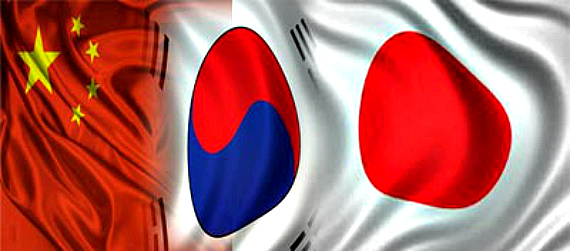

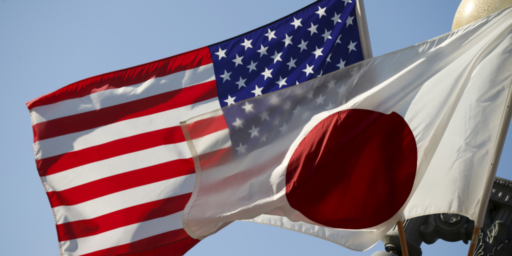
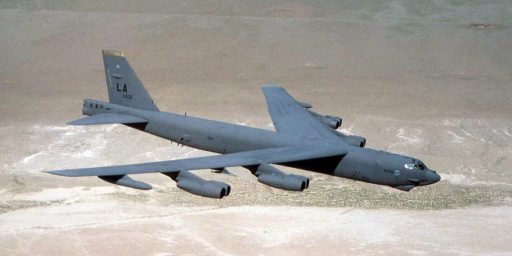
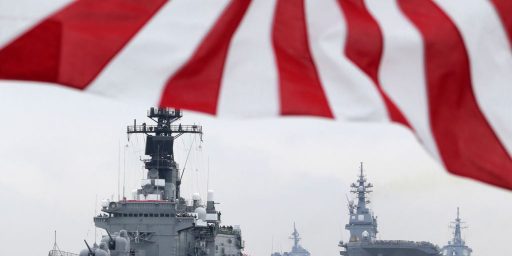
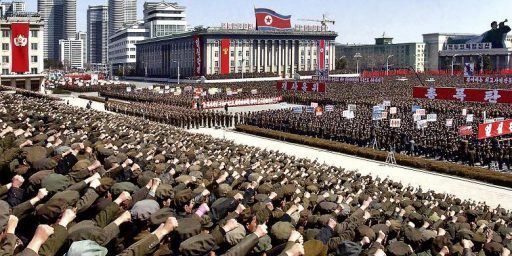
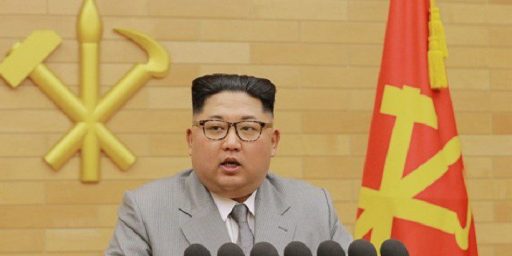
Doug,
Your posts on this subject have been great. Thanks.
That is all.
Like, what can go wrong?
Here’s my idealistic proposal: define the disputed area and create a neutral space whose resources are to be exploited under a commission whose members will be drawn equally from the three nations involved. All proceeds to be devoted to foreign aid in Asia.
No war, everyone looks very mature, and the Chinese, Japanese and Koreans get to play big swinging dicks all over Asia with free vaccines and disaster relief and maybe a set-aside fund for North Korea’s eventual collapse.